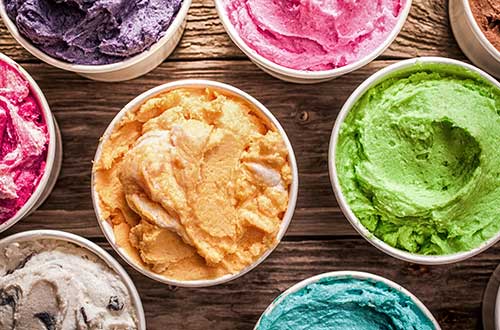STYRON™ CO2RE™ BIO85 bio-attributed polystyrene offers a 71 percent reduction in CO2 footprint compared to all-fossil equivalent
Trinseo has led the way in the development of polystyrene (PS) polymers for over eight decades, maximizing PS’ versatility for a wide range of end markets, and contributing towards the material’s full circularity to optimize its sustainability potential.
Polystyrene continues to be one of the most widely used materials for packaging, and Trinseo provides a variety of solutions for different packaging needs, including sustainably-advantaged solutions that help reduce the use of raw materials without a hefty cost.
As one of the world’s leading PS manufacturers, Trinseo as a material solutions supplier, has partnered with a premier French manufacturer of ice cream and sorbet packaging, to enable a sustainably-advantaged solution to its current material challenge. This solution - STYRON™ CO2RE™ BIO85, a PS resin whose feedstock contains 85% end-of-life bio sources, according to the mass balance (ISCC PLUS).
The Challenge
Packaging is a critical component of the final product. It provides protection, convenience, information and appearance, all essential elements to achieve a successful consumer sale.
For food packaging products, end-users have even higher expectiations about the products and their packaging, in terms of safety, convenience and visibility. Polystyrene is one of the prevalent polymers when it comes to food packaging products. Trinseo’s polystyrene resins are recognized as some of the materials on the market with high processing speeds and optimal thermoforming properties.

Now, our partner, a French manufacturer of containers for ice cream and sorbets, have approached us looking for a material solution with a lower environmental footprint, that also meets the stringent demands of regulators and consumers alike.
The Development
Our partner was already using Trinseo’s STYRON™ PS resin for its ice cream tubs, but as the industry is seeking to use raw materials with a more sustainably-advantaged CO2 footprint, it was important to provide customers with a food contact approved solution that had a lower CO2 footprint than the all-fossil equivalent.
The solution was STYRON™ CO2RE™ BIO85, a polystyrene resin whose feedstock contains 85% end-of-life bio sources, according to the mass balance (ISCC PLUS) principle that provided our partner with a convenient, and drop-in solution.
The Mass Balance approach has become the recognized standard for tracking inputs and outputs when mixing sustainable and fossil-based materials in a production process. It is a chain of custody method to track sustainably- advantaged materials throughout complex value chains to measure sustainable content in finished goods. It is a methodology applicable to and widely used by many industries.
The ISCC PLUS Mass balance certification comes into play at four key junctures - once after the raw material refining process when the bio-feedstock is turned over for cracking, next after feedstock cracking, and again after the final material is manufactured, as it is delivered to the customer. ISCC PLUS Mass Balance Sustainability Declarations provide evidence of sustainable content for internal and external tracking purposes.

Both Trinseo and the packaging manufacturer are mass balance (ISCC PLUS) certified by independent ISCC PLUS auditor, contributing to increased transparency and trust regarding the products manufactured.
The Result
Trinseo is supplying its partner with STYRON™ CO2RE™ BIO85, a product that has a 71% lower CO2 footprint compared to its fossil counterpart. Furthermore, thanks to it being chemically identical to its fossil equivalent, manufacturing can occur using the same tools and processes.
Key Benefits:
